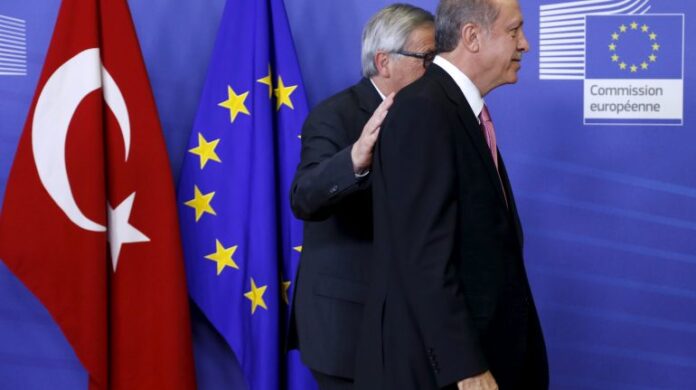Author: Michaël Tanchum
Affiliation: The University of Navarra, Austrian Institute for European and Security Policy (AIES)
Organization/Publisher: SWP (German Institute for International and Security Affairs)
Date/Place: June 2021/ Berlin, Germany
Type of Literature: Working Paper
Number of Pages: 32
Keywords: Turkey, West Africa, Maghreb, EU, Economic Interregional Pattern
Brief:
Michaël Tanchum proposes the global competition for Africa, especially with an economic perspective as well as the Turkish economic outreach to the Maghreb and West Africa. Tanchum argues that Turkey has the potential to draw a new interregional pattern of commercial connectivity between Europe and Africa by integrating economic activities of almost 18 nations of the Central Maghreb and West Africa. Through its dual gateways to West Africa, Algeria as the Mediterranean gateway and Senegal as the Atlantic gateway, Turkey could consolidate its presence in the African continent. However, Tanchum underlines that Turkey in seeking to create ‘Turkish-led manufacturing value chains’ should allow for other international actors to integrate. Despite the Turkish economic expansion in the Maghreb and West Africa, it may fail to create these value chains required since it is mainly focusing on vertical integration that depends on its sectoral strengths in iron and steel; cement building materials; and textiles and apparel. In other words, Turkey’s dependency on ‘vertical integration’ could alienate other international actors through its monopoly over all the stages of the value chain, from raw material input to the end-market distribution, which hinders developing multinational manufacturing value chains. This would promote a kind of extended ‘neomercantilism’ that precludes other African partners from freely developing value chains. Turkey will ultimately lose economic ground in Africa and face a political backlash. This has materialized in the protective tariffs imposed in Morocco and Tunisia against Turkish textile and apparel exports. Therefore, Turkey may increase its defense cooperation with African states to maintain its economic relations. However, the tendency for Turkish military presence in Africa could provoke tensions between Turkey and France and the EU as a whole. He recommends that Turkey could expand to new manufacturing sectors and play a leading role in interregional Euro-Africa value chains. Multilateral joint-manufacturing ventures in Africa could serve as a new win-win economic architecture that could help reframe Turkey-EU relations. Tanchum introduces some recommendations including the enhancement of coordination between the EU and the Union for the Mediterranean, and the development of joint EU-Turkey investment platforms in West Africa.
By: Yomna Süleyman, CIGA Research Assistant




